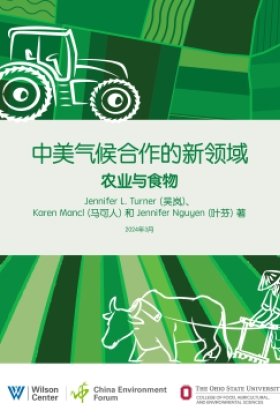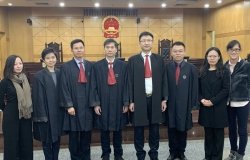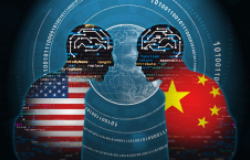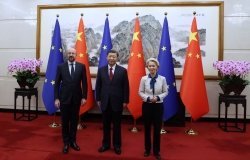Public Policy Scholar Wu Junhua on Sino-Japanese Relations Following Japan's Earthquakes and Tsunami
Ever since World War II, many Chinese have harbored deep-seated mistrust and resentment towards the Japanese. This has given rise to many misconceptions about Japan. Although democratization has produced substantial changes in Japanese society since the war, many Chinese still cannot erase from their hearts wartime images of massacres of Chinese civilians by the Japanese army.
Now We are all Japanese:
The Psychological Distance Between Chinese and Japanese has Shrunk
in the Wake of Japan's Three Earthquake-Related Crises
On March 11, 2011 the 9.0-magnitude earthquake and tsunami disaster that struck north-eastern Japan caused significant loss of life to coastal residents and immense damage to Japan's societal infrastructure. Hopefully, it will have the opposite effect on the soured relationship between Japan and China. With the 2008 Sichuan earthquake still fresh in their minds, many Chinese sympathize with Japan in the face of the unprecedented magnitude of this natural disaster.
Ever since World War II, many Chinese have harbored deep-seated mistrust and resentment towards the Japanese. This has given rise to many misconceptions about Japan. Although democratization has produced substantial changes in Japanese society since the war, many Chinese still cannot erase from their hearts wartime images of massacres of Chinese civilians by the Japanese army. Upon first hearing that eastern Japan was critically hit by a major earthquake and tsunami, some Chinese even extolled it as ‘divine punishment' for the Japanese.
Nevertheless, in spite of the difficult situation they faced, Japanese citizens remained orderly. As the scenes of people helping each other were broadcast across television and the Internet, many Chinese were shocked and moved to see a different face of Japan. As a result, Chinese society, especially the intellectual community, experienced a profound change of heart.
"Although [we] were greatly damaged in the past, we must end our resentment towards the west and Japan."
"With this unprecedented natural disaster at hand, let's help the Japanese."
"The time has come for us to repay the Japanese, who supported us in the aftermath of the Sichuan earthquake three years ago."
Voices such as these have been echoing across China, particularly in the Internet world, rapidly filling what was once a staunchly anti-Japanese forum with sympathetic sentiments. This transformation holds out hope that the earthquake disaster may provide an opportunity for Chinese to change their attitudes towards Japan for the better.
For example, ifeng.com, a net site affiliated with the Hong Kong-based popular Chinese-language television network Phoenix Television, conducted a survey showing that 85% of 1,100,000 people who participated responded affirmatively to the question of ‘whether China should support Japan.'
Given the numerous points of friction between China and Japan, such as the conflicting territorial claims to the Diaoyu-Senkaku Islands and differences over Japan's projected oil development in disputed waters in the East China Sea, China-Japan relations will undoubtedly continue to experience less than smooth sailing. But if distorted Chinese perceptions of Japan have been brought a little closer to reality by the dark cloud of the earthquake disaster, this is a small but significant silver lining.
About the Author

Junhua Wu
Chairwoman and Chief Economist, The Japan Research Institute (Shanghai) Consulting Co, Ltd., Council Member. The Japan Research Institute Ltd. (JRI), Sumitomo Mitsui Financial Group (SMFG). Tokyo, Japan., Honorary Research Fellow. Center for Japanese Studies, Fudan University. Shanghai, China., Chief Senior Economist. JRI, SMFG. Tokyo, Japan.

Kissinger Institute on China and the United States
The Kissinger Institute works to ensure that China policy serves American long-term interests and is founded in understanding of historical and cultural factors in bilateral relations and in accurate assessment of the aspirations of China’s government and people. Read more










